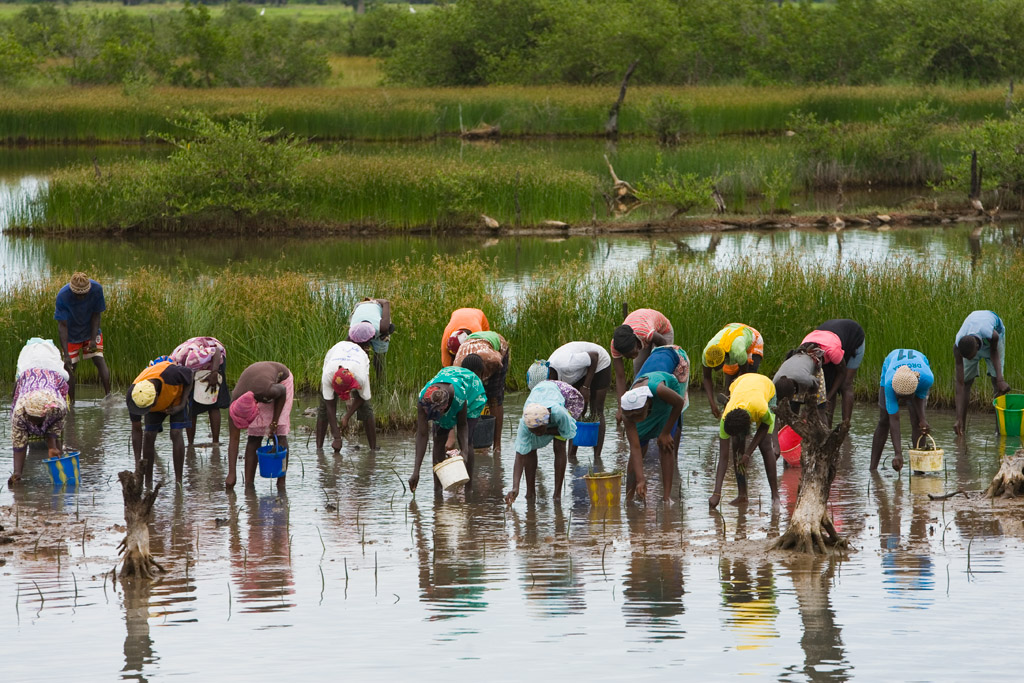The Livelihoods Carbon Fund is a private sector initiative led by Danone that uses carbon finance to restore ecosystems and improve the lot of smallholder farmers
France’s leadership on climate change includes a commitment to the $100bn Green Climate Fund and implementing the Sustainable Development Goals. In his speech last month the new ecology minister Nicolas Hulot restated those commitments, pledging $1bn for the Green Climate Fund and another $2bn for renewables in Africa.
France already funds such projects through the FFEM, the French Facility for Global Environment, which links several ministries with agencies in the French-speaking world, particularly in Africa. The FFEM is also supporting an innovative private-sector collaboration to raise carbon finance for smallholder farmers, the Livelihoods Carbon Fund.
The fund is the brainchild of Bernard Giraud, who started the Danone Fund for Nature in 2008, when he was in charge of sustainability at the giant food company. He was looking to make the Evian water brand carbon-neutral. Rather than simply buy carbon credits to offset emissions, Giraud set up a model that would allowed Danone to work directly with NGOs and project developers. It calls itself a private-sector impact investment vehicle. The projects are designed to deliver those impacts – social and economic – to farmers and also to the environment by restoring ecosystems.
The fund set up the world’s largest mangrove restoration project in Senegal, which led to local communities planting 79 million trees, which are expected to offset half a million tons of carbon. Realising the model could be applied more widely, after two years it became independent of Danone and was opened to other corporations in 2011 and rebranded the Livelihoods Carbon Fund.
Nine other companies have since joined: Schneider Electric, Crédit Agricole SA, Michelin, Hermès, SAP, CDC Climat, La Poste, Firmenich, and Voyageurs du Monde. Giraud, the fund’s president, says it’s a win-win-win arrangement.

“We leverage the carbon economy to bear the upfront investment risk for project implementation and monitoring. Projects create benefits for the rural communities and for the environment. We get back the credits from the carbon that is sequestrated.”
It presently has nine projects in Asia, Africa and Latin America, has helped about a million people and sequestered around 10 million tons of CO2, at a cost of €50-€55m. The projects are set up for
the long-term (10 to 20 years) in order to give local communities time to make the projects their own and ensure that the benefits are long-lasting.
Focus on supply chains
In 2015 a second investment fund was launched: the Livelihoods Fund for Family Farming (Livelihoods 3F). It has the same environmental and social mission of the carbon fund, however the main goal of this second fund, which has funding from Danone, Mars, Firmenich and Veolia, is to focus on sourcing for large corporations, simultaneously tapping their expertise to transform the supply chains and helping smallholders improve quality and productivity.
The newest project is a 10-year vanilla growing scheme in Madagascar with 3,000 family farms. The companies will be providing €2m in funding to Fanamby, a Madagascan NGO with extensive experience working with vanilla producers. A new farmer-owned cooperative, structured with Fanamby’s support, will seek to connect producers more directly to markets.
By training farmers to collect the vanilla, cure it and export it to the project partners, it’s estimated that around 60% of cured vanilla’s value will go back to farmers, instead of 5% to 20% today.
The project will also tackle food security with a special focus on rice production as well as crop diversification for a more balanced daily food intake for farmers.
With smallholders providing 70% of the world’s food and threatened by climate change, there’s plenty of scope to scale up the model. But Giraud says this will have to be done in a manageable way. “If we were 50 corporations, that would not be easy.”
This article is part of a series on France. See also:
Can Macron add green to the tricolour?
France steps up war on plastic waste
Danone calls for nutrition revolution to fix 'broken' food system
Taking aim at corporate human rights abuse
Taking a broom to corruption
The companies leading the pack on CSR

